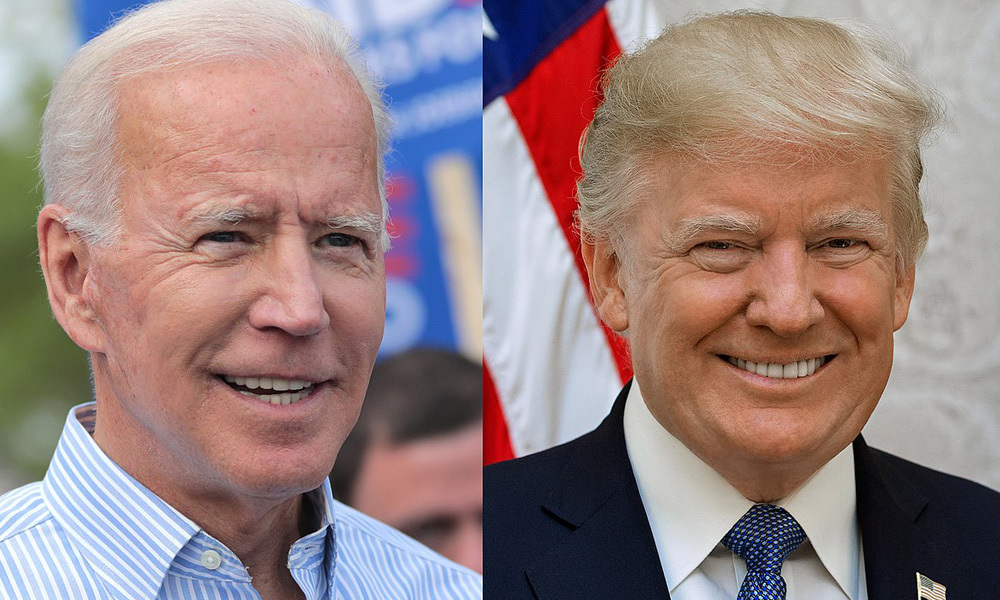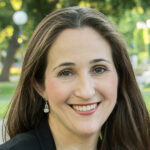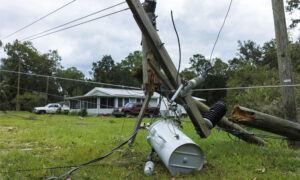A new poll showing Donald Trump beating Joe Biden in five out of six battleground states has many Democrats fretting over whether Biden should step aside to allow another candidate to face off against his most likely GOP rival.
The poll, conducted by The New York Times and Siena College, showed that a majority trusted Trump over Biden when it came to the economy, foreign policy and immigration. It also showed support for Biden eroding among younger voters and people of color.
To help make sense of the poll, we turned to four experts at the USC Sol Price School of Public Policy who specialize in polling.
The four experts agreed that it is too early for any poll to accurately predict the outcome of the presidential election in November 2024. Nevertheless, the poll is a warning flag, particularly for Biden, but also for Trump.
Mark Baldassare, Senior Fellow at the USC Price School’s Bedrosian Center on Governance
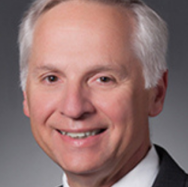
“Polls a year out are a snapshot in time but important. I think they tell you about the mood of the electorate now and what are some of the strengths and weaknesses of each candidate,” said Baldassare, statewide survey director at the Public Policy Institute of California. “But they may not be predictive, especially when you’re talking about a close election where thousands of voters might determine the outcome.”
Polls at this point can also be misleading because they can’t account for unforeseen but highly consequential events, Baldassare noted. In 2016, the unexpected controversy over Hillary Clinton’s emails may have thrown the election to Trump. In 2020, Biden almost certainly benefited from complaints about how Trump handled the COVID-19 pandemic. And last year, the overturning of Roe v. Wade and abortion rights may well have turned the expected ‘Red Tsunami’ in Congress into a ripple.
It’s anyone’s guess what the Black Swan of the 2024 election might be.
Wändi Bruine de Bruin, Provost Professor of Public Policy, Psychology, and Behavioral Science
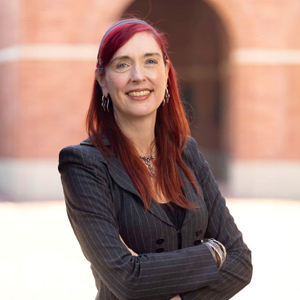
It’s not just that it’s too early for polls to accurately predict the outcome.
“The other point is whether the poll even actually predicts what people are thinking now because election polls are becoming less accurate,” said Bruine de Bruin, who is professor at both the USC Price School and USC Dornsife College of Letters, Arts and Sciences.
Bruine de Bruin is helping develop a new polling method in which pollsters ask voters not who they plan to vote for but who their friends and family members plan to vote for. While the average poll missed Biden’s margin of victory in the 2020 election by an average of 3.9 points, the “social circle” poll, as it’s known, was off by only one point.
So, would this new polling method do any better at this point?
“Even polling with the social-circle approach might not actually be accurate because (the election is) so far out into the future, she said.”
Christian Grose, Academic Director of the USC Schwarzenegger Institute for State and Global Policy

The Times/Siena poll showed Trump leading Biden by 10 points in Nevada, six in Georgia, five in Arizona and Michigan and four in Pennsylvania. Biden was ahead by two points in Wisconsin.
Grose – a Professor of Political Science and Public Policy at the USC Price School and USC Dornsife – notes that it’s more difficult to get accurate polling results in smaller states such as Nevada, Wisconsin and Arizona. “It’s just a smaller number of people among registered voters, especially in Nevada,” he said.
Less populous states also tend to have lower levels of education and voters who are harder to reach and less likely to respond to polls.
The Times/Siena poll solicited input from registered voters. But results could look very different, Grose said, closer to election when pollsters reach out to likely voters.
“This far out it’s hard to predict the likely voters, so we do registered voters,” he said.
In one of its most surprising findings, the poll found that 22% of Black voters supported Trump. The poll also found Biden’s support dwindling among Hispanic voters.
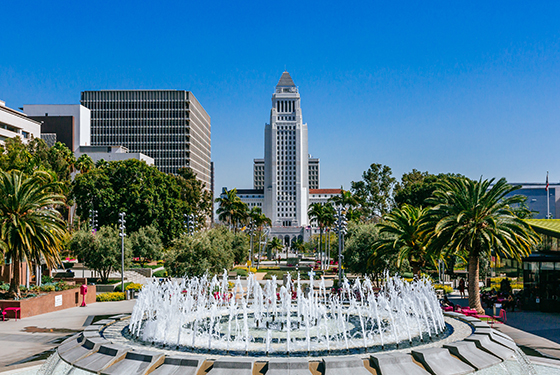
Master of Public Policy
Advocate & Innovate for a More Just World
Effective public policy has the power to disentangle increasingly complex global and domestic challenges. With an MPP from USC, you will have that power too.
Find Out MoreGrose is skeptical.
“It gives me pause to say anything definitely about Black voters and similarly with some of the other groups,” he said. While the findings may turn out to be true, the polling challenges in smaller states make it difficult to make definitive conclusions.
Baldassare agreed.
“If you go back to four years ago and think about where Biden was before the primary season started, he really didn’t capture the interest of younger and multicultural voters,” he said, until the South Carolina primary.
But Baldassare also noted that Biden has not been able to keep the attention of younger and multicultural voters, so it will be a big challenge for the president to reinvigorate these voting blocks.
Of course, Trump faces the same challenge, Baldassare said.
Mindy Romero, Director of the Center for Inclusive Democracy
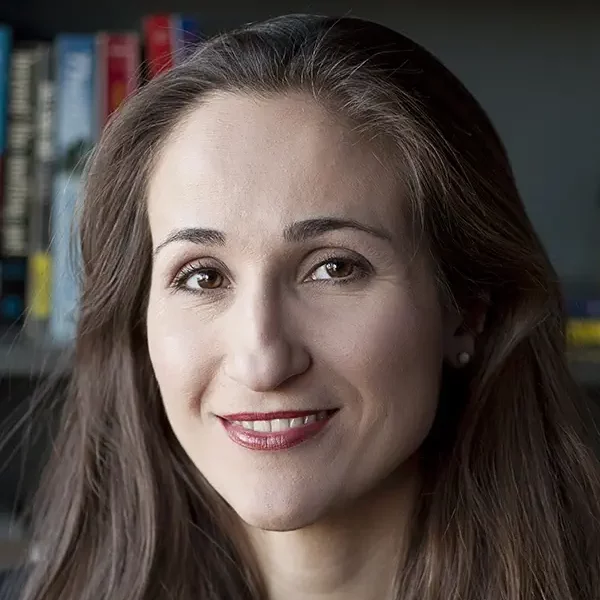
“If we take the findings on their face, Biden should be concerned and many people will be worried about what this means for Biden’s strength going into the 2024 election cycle,” said Romero, who is a Research Assistant Professor at the USC Price School.
“But I will say it’s early,” she continued. “There’s a lot of time between now and November. And there’s a lot to be seen in terms of what happens to Donald Trump with all of his indictments.”
The Times/Siena poll showed that about 6% of voters in Arizona, Georgia, Michigan, Nevada, Pennsylvania and Wisconsin would switch their votes to Biden if Trump were convicted and sentenced as the result of the criminal charges he faces. And that would be enough to throw the election to Biden.
One of the wild cards in the race is Vice President Kamala Harris, who actually polled slightly higher than Biden.
As the first woman of color to ascend to the vice presidency, Harris initially generated a lot of excitement among the Democratic base. But in recent years she has been far less visible, in large part, Romero said, because it’s the president who determines her activities and therefore her profile among the media and public.
“There is some disappointment out there, but she doesn’t have a lot of control over her exposure,” Romero said. “They haven’t given her a chance to shine. It’s allowed for more disinformation, especially from the far right, around her. People still don’t know who she is.”
The economy will play a major factor in who voters select as the next president – just as it always does. At the moment, a majority of voters in the poll think Trump would be a better steward of the economy, while Biden is suffering from stubborn inflation. But if the stock market recovers and inflation continues to fall, things could look very different in November, Romero said.
